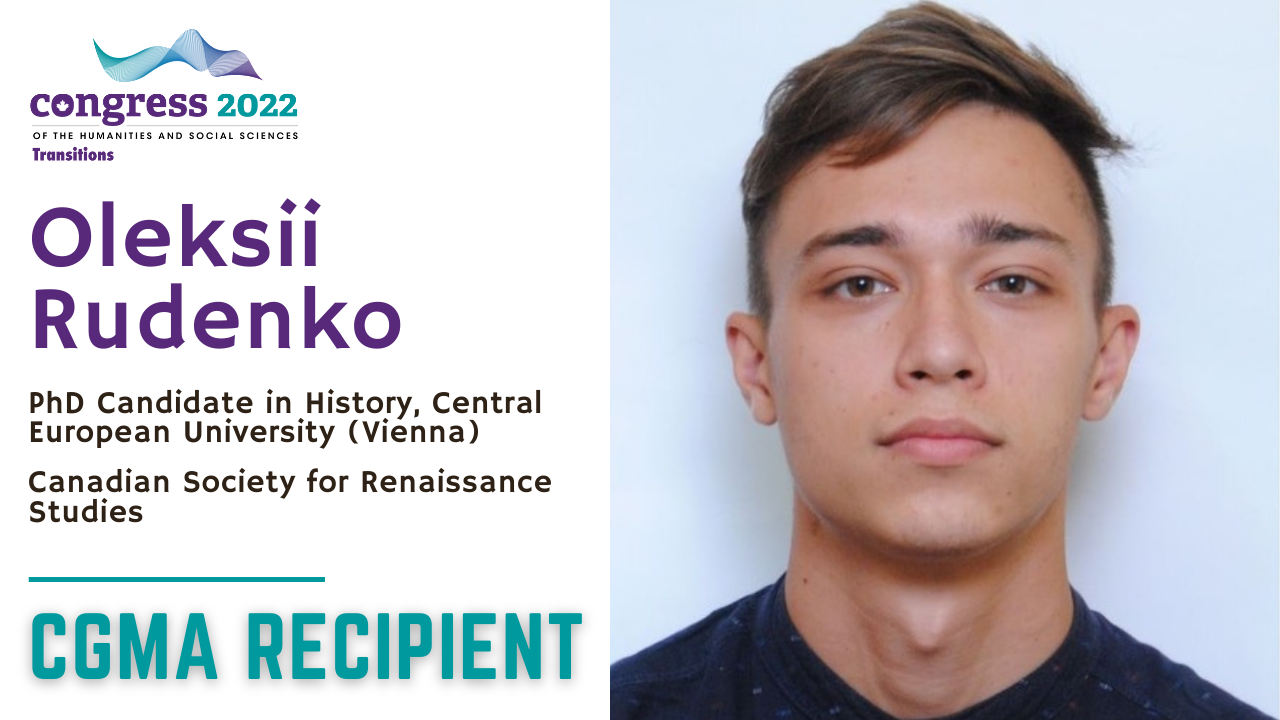Nominated by member scholarly associations of the Federation for the Humanities and Social Sciences, the 2022 Congress Graduate Merit Awards recognize exceptional graduate students who will be presenting their work at the Congress of the Humanities and Social Sciences.

Tell us about yourself.
Oleksii Rudenko, PhD Candidate in History, Central European University (Vienna) & visiting doctoral student, Vilnius University. Currently, I also volunteer for Ukrainian army. My research focuses on the origin myth-creation in early modern Lithuania, Poland, and Ruthenia. I am interested in Renaissance cartography, ethnography, cultural transfer, and history of knowledge.
Which scholarly association(s) are you currently a member of?
- ASEEES – Association for Slavic, East European and Eurasian Studies
- SHERA - Society of Historians of Eastern European, Eurasian and Russian Art and Architecture
- CRS – Center for Religious Studies, Central European University
At which conference(s) will you be presenting and/or attending?
Canadian Society for Renaissance Studies
What is the title of your Congress 2022 presentation?
The Power of the Story: Eastern Europe as Renaissance El Dorado
How would you describe the research you will be presenting at Congress 2022?
My research examines the myths and stereotypes existing in the ‘West’ about familiar strangers – Eastern European people in the era of transitions and shifts of knowledge paradigms. I will explore the representation of Eastern Europe as an alternative of El Dorado and a counterpart to America closer to Western Europe on the basis of several texts and especially maps that formed the image of the region in the fifteenth-sixteenth centuries.
How does the research you will be presenting connect with the Congress 2022 theme, Transitions?
The early modern era was a time of changes and transitions – in spatial imagination and representation of the world. The place of Eastern Europe was still negotiated and undefined at that time: being neither a distant unknown land (like America), not an integrate part of Catholic Western Europe, the lands of Ruthenia (modern Ukraine and Belarus) and Lithuania attracted many travellers and geographers who either followed the ancient stereotypes about the region and its treasures, or promoted their own representation that in turn created new myths about Eastern Europe.
Share your hopes for Congress 2022.
I hope for a dynamic intellectual exchange, but most importantly, to bring the Eastern European dimension – that is both European and global – to Renaissance studies that frequently omit this region or present it as an exception rather than normality. I argue that Eastern Europe was not detached from Western European Renaissance, but on the contrary, contributed to it and created its own vision of ‘normality’. Given the Russian aggression against Ukraine, there is also a need to decolonize Eastern European and Slavic studies, and I would also pay attention to methodological basis of this.
